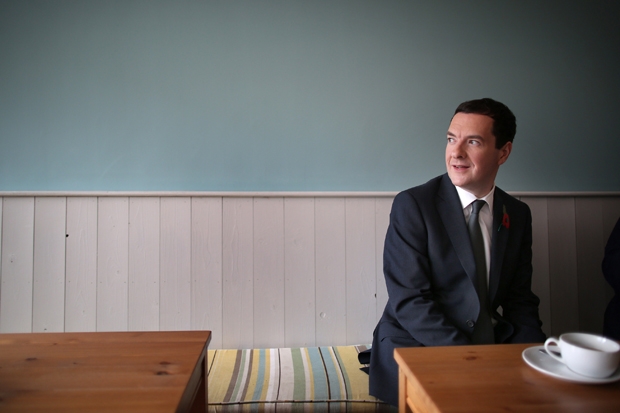Autumn Statements lack the drama and traditions of the Budget. Gladstone never delivered one, there is no Autumn Statement box and no possibility of a dram of whisky as the chancellor delivers it. But this year’s Autumn Statement was more important, and more substantial, than next year’s Budget will be: the Liberal Democrats are adamant that March is too close to the general election for the Budget to do anything other than update the fiscal forecasts and set out the duty rates.
The test this week isn’t economic but political. As with last year, the Tories have spent the autumn racing down a rabbit hole after a populist policy initiative: this time it was Ukip’s immigration policy, last year it was Ed Miliband’s energy price freeze. In both cases the Tories spent far too long dancing to their opponents’ tune and now have to steer the national conversation back to the economy and away from immigration and the NHS.
Osborne responded to this challenge with a typically canny manoeuvre. In the tradition of Peel and Disraeli, he simply walked off with his opponents’ clothes, promising another £2 billion for the Health Service. This left Labour awkwardly claiming that it would spend £2.5 billion more on the NHS than whatever the coalition put in, a rather exposed position for a party trying to establish its fiscal credibility. He also neutered some of the populist appeal of Labour and the Liberal Democrats’ proposed mansion tax, with a highly progressive new stamp duty regime.
Then there were a few traps laid for Labour. Ed Miliband and Ed Balls have to decide over Christmas whether to oppose Osborne’s deficit reduction timetable before a Commons vote in the new year. If they do, he’ll brand them fiscally irresponsible. If they don’t, they’ll be left facing calls to set out more cuts, thus disappointing those left-wing voters who want Labour to be an anti-austerity party.
There was an emphasis on how the UK economy is growing while so many other countries’ are not.









Comments
Join the debate for just £1 a month
Be part of the conversation with other Spectator readers by getting your first three months for £3.
UNLOCK ACCESS Just £1 a monthAlready a subscriber? Log in